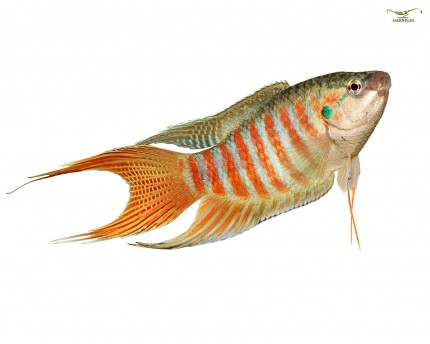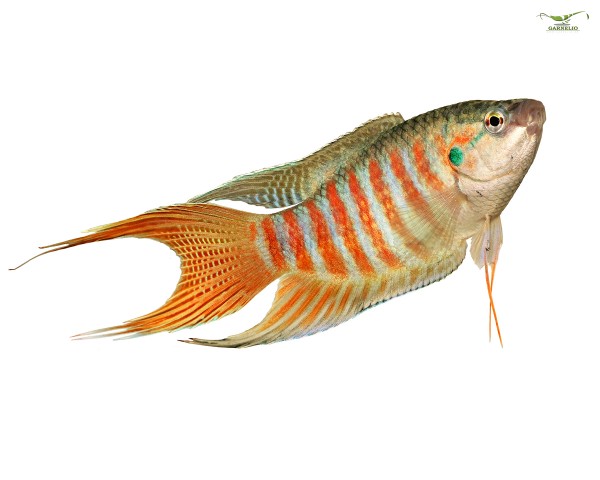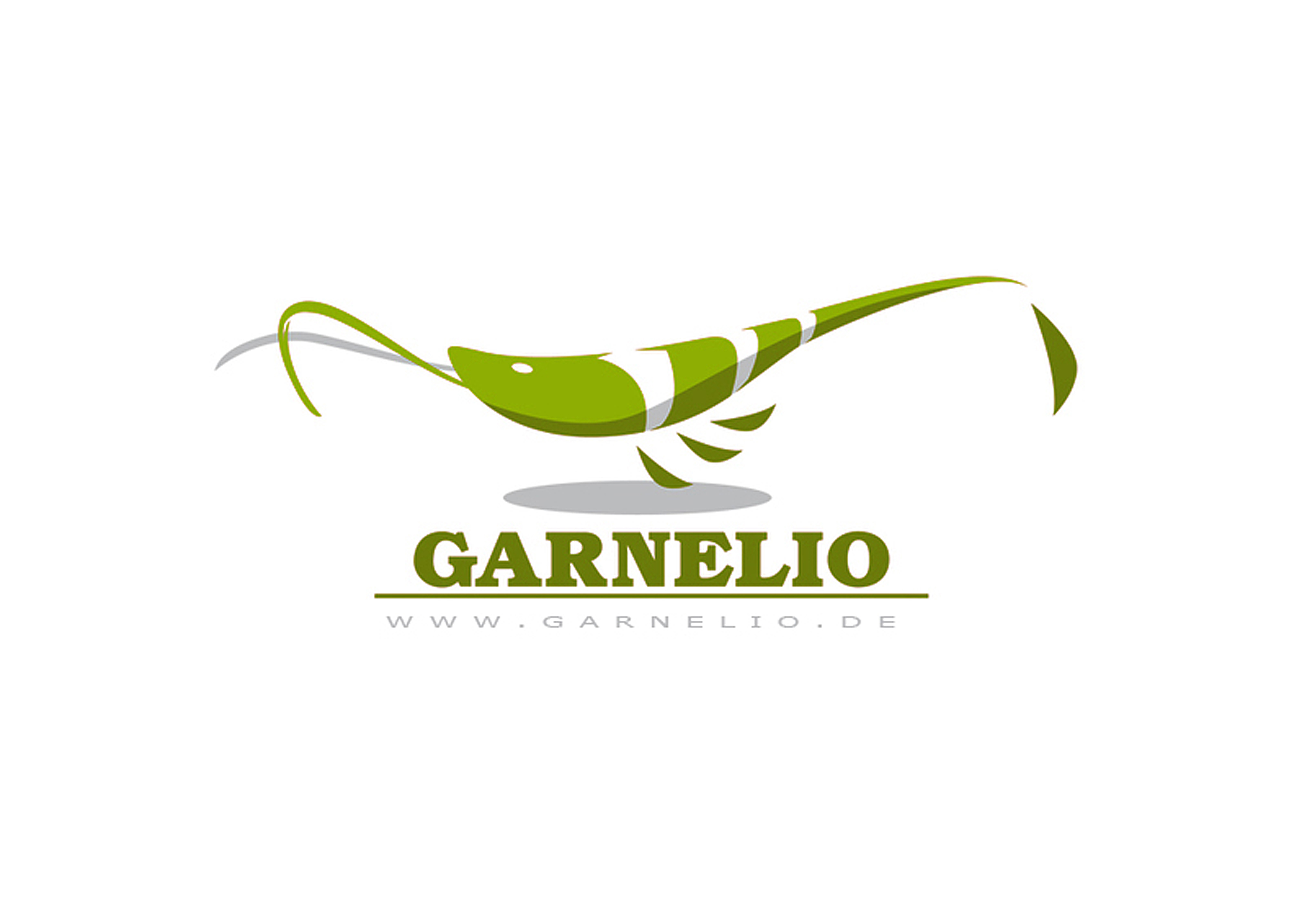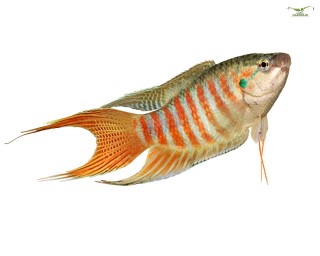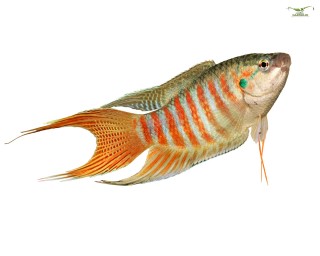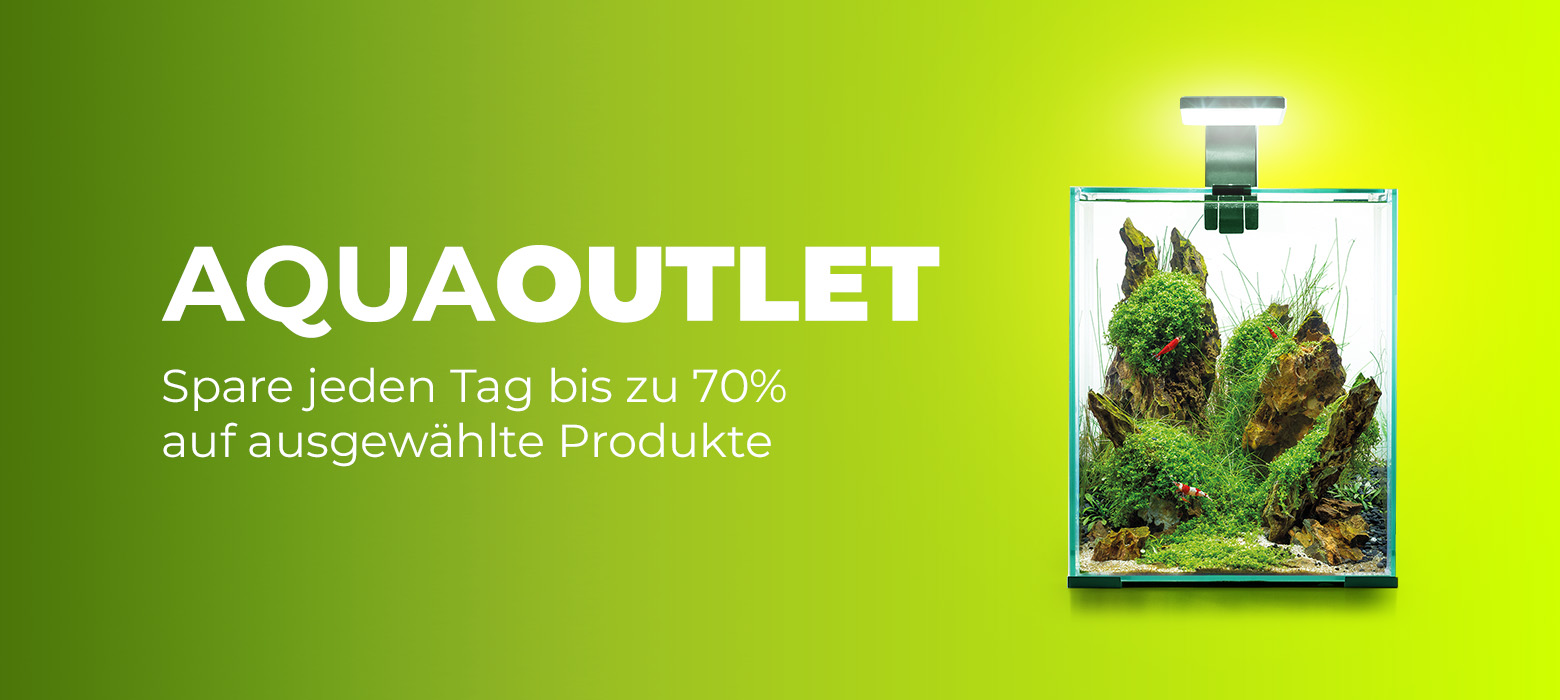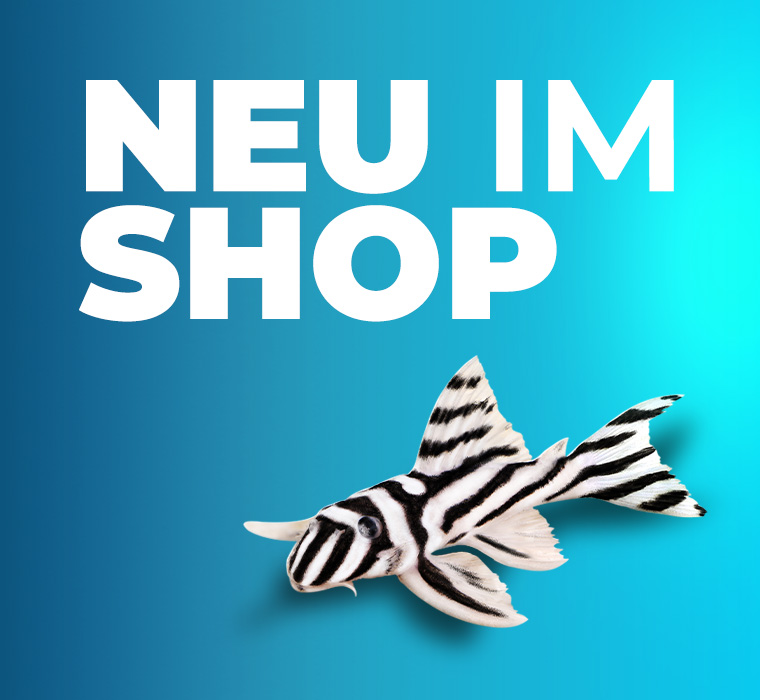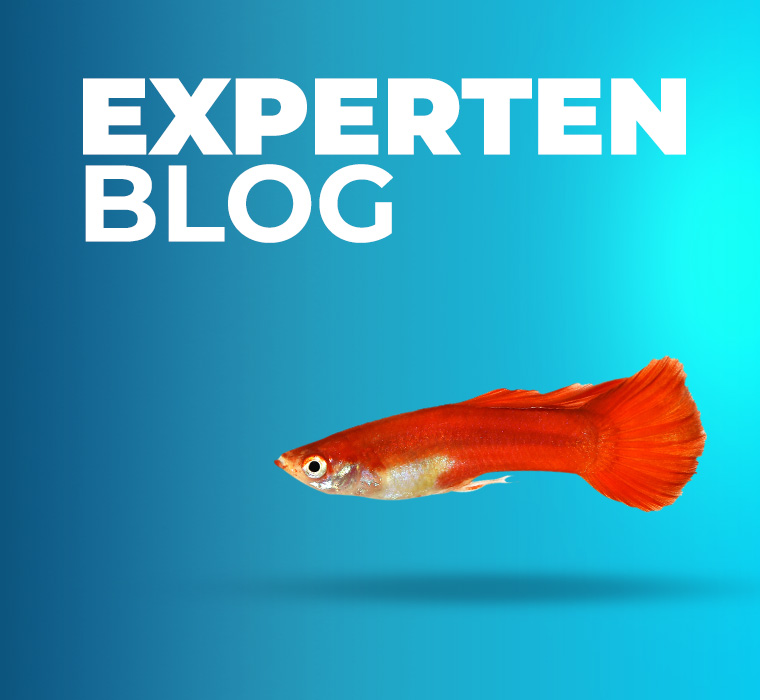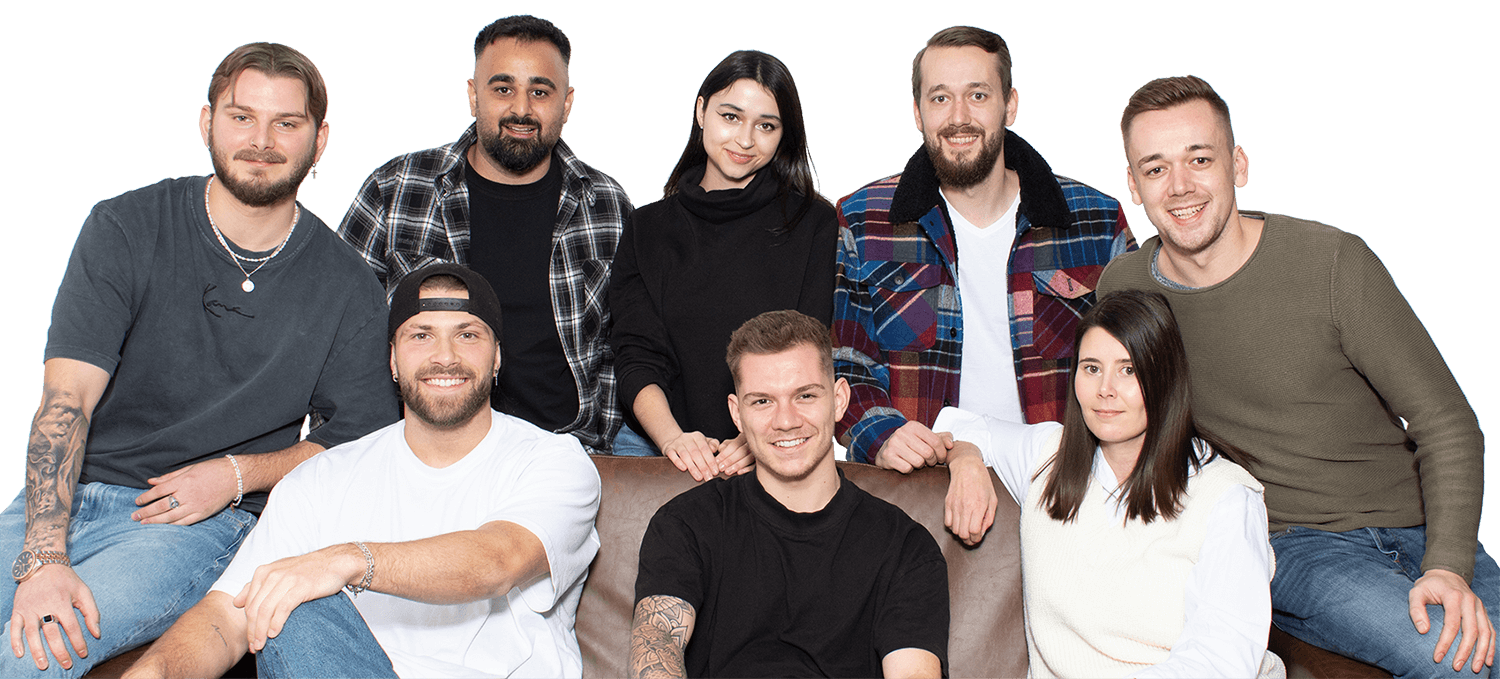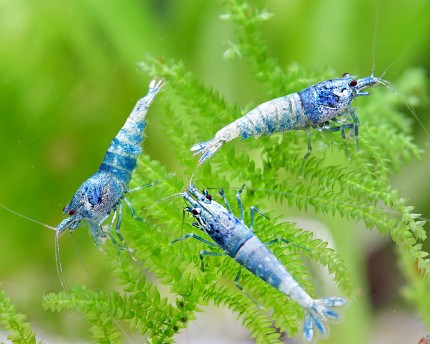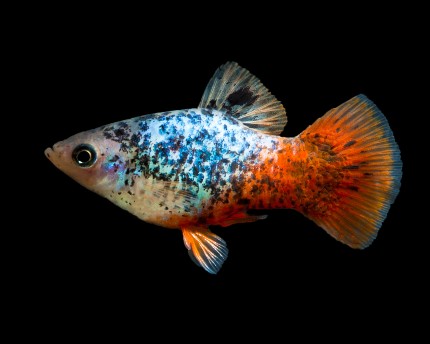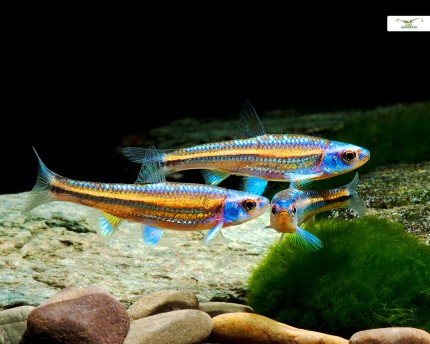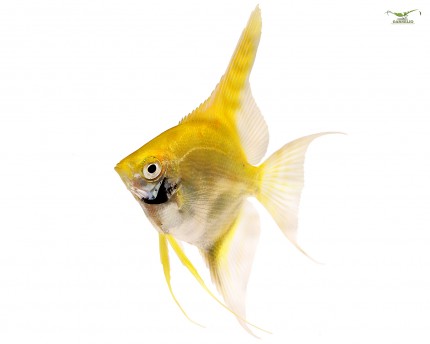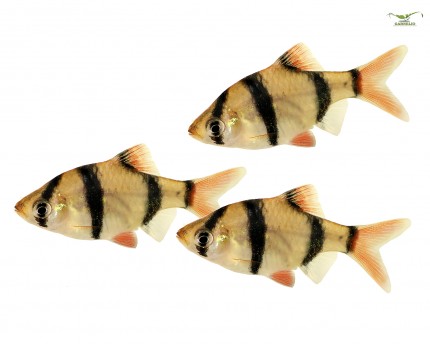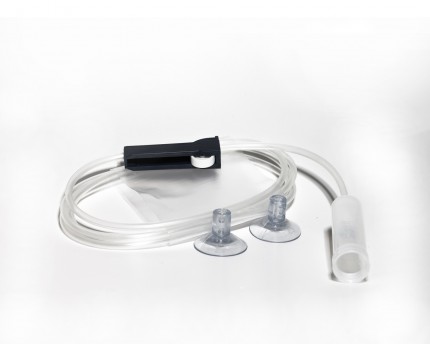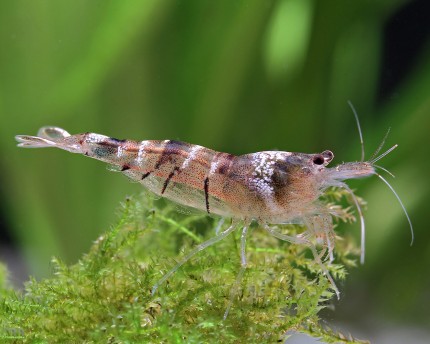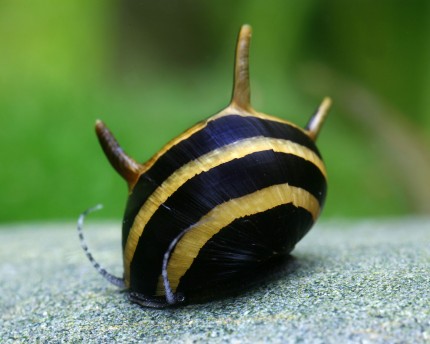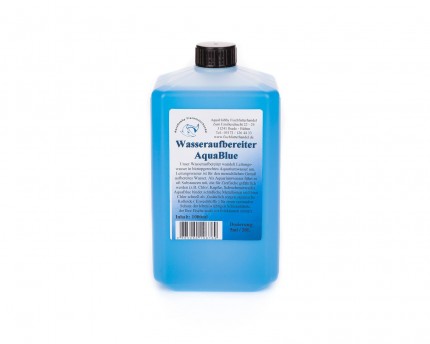incl. VAT plus shipping costs
Ready for shipment in 2 Day(s)
Delivery only innh. Germany and Austria possible.
Switch to the German store
- Item no: 31003
Fast delivery times
All products are in stock with us!14 years of breeding experience
Let our team of experts advise you!High customer satisfaction
from over 3,000 reviews "| Water values: | soft to hard |
| Origin: | Asia |
| Final size: | 8-12 cm |
| Difficulty: | 1 - Simple |
| with snails/shells?: | Yes |
| Planting possible?: | Yes |
| Visual effect: | Especially colorful |
| Diet: | omnivorous - omnivorous |
| with dwarf crabs?: | conditional* (see description) |
| Pelvic region: | Top |
| Breeding: | simply |
| Aquarium size: | 100 l (approx. 80cm) |
| with shrimps?: | with shrimps from 4-6 cm size |
| Fish group: | Labyrinth fish |
| Temperature: | 25-30 °C |
Macropodes, Macropodus opercularis, are known to most as blue paradise fish and can be kept in both garden ponds and aquariums. Originating from Asian rice paddies and stagnant as well as flowing swamp waters, canals and calmed rivers, between China and Vietnam, this hardy fish can be maintained in almost any water and also propagated at appropriate temperatures.
Usually Paradise Fish have a gray-brown base coloration with red flanks and vertical light stripes, over which blue lines run. In males, the fins may also be colored. Thanks to the dark but brightly fringed gill cover patch, macropods were given the epithet "opercularis", which derives from the Latin operculum-gill cover. The pectoral fin rays, like the anal and dorsal fins, are elongated and pointed, and the tail is forked, which also earned it the name fork-tailed mac ropod. With a length of up to 10 cm the males grow about 2 cm larger than the females. This territorial, sometimes rebellious fish likes to push shy by-fish into the corner, also among themselves males are not exactly the best friends, which is why it should be kept better as a pair.
Macropods can be distinguished by their coloration alone; the males really shine in their colors, whereas the females appear rather paler.
Paradise fish, like threadfish and fighting fish, are foam nest builders. Floating plants and darkened corners in the aquarium support the spawning readiness, as well as a strong and varied frost and live food. As soon as the female spawns, this signals the nest-building instinct to the male, which then begins to build a foam nest in an aquarium corner. At spawning time, he becomes unpleasant to his fellow fish and will not tolerate disturbance. The only exception is the female, which is near the nest during this time, but is not particularly bothered by him. Once he has completed this, he "allows" the female to inspect it thoroughly, and if she is pleased, she will mate with him. The eggs are very oily, whereupon they rise into the foam nest after being expelled. Between 10 and 30 eggs are laid per spawning cycle, and the total clutch can contain up to 500 eggs. After that, the female is no longer tolerated near the nest and is chased away. Depending on the water temperature (24-27° C), the larvae hatch within 36 hours and swim free after another 36 hours. They can be fed with dust powder and later switched to Artemia nauplii.
Macropods should be kept in pairs in a rather larger aquarium of 80 liters or more, which should also have a good underwater structure in the form of roots and stones, as well as dense planting to provide sufficient retreat opportunities for the females and by-fish. Water parameters are of little importance, it is recommended that the fish be introduced into the same water parameters in which they were previously kept. A current and extra aeration is not necessary.
A socialization is suitable only with not fin-twitching by-fish, like catfish, some barbs (no Sumatra barbs!) and tetras, as well as livebearers. Socialization with invertebrates is rather inadvisable, as they could be considered live food.
Paradise Fish can be fed large live foods and frozen foods such as daphnia, mosquito larvae and artemia, but can also be acclimated to dry and granular foods. Usually they do not mess with plants.
Our food recommendation: The soft granulate NatureHolic Bettafeed has been optimized in its composition to meet the needs of fighting fish and other carnivores. However, fighting fish do not only need pure animal proteins. A small proportion of vegetable substances imitates the intestinal contents of prey animals, with which the beautiful bettas in nature ultimately eat a certain amount of plant food. Garlic extract has a strengthening effect and can support the immune system and also make it strong against parasites.
Our plant recommendation: Use for planting NatureHolic InVitros. These are free of snails, planarians and other unwanted co-inhabitants. Also free of algae spores, bacteria and fungi.
Expert Tip: We recommend when keeping fish the NatureHolic 3 Phase Liquid. The care set offers the best all-round protection for your animals. It ensures optimal conditions for successful breeding and keeping.
| Scientific name: | Macropodus opercularis |
| German name: | Pradies fish, fork-tailed macropod |
| Difficulty level: | for beginners |
| Origin/Distribution: | Asia, China, Vietnam |
| Coloration: | gray-brown base coloration with light stripes, males have alternating 10 red and blue stripes on the head area, as well as partially colored and elongated fins, and a forked tail, females remain smaller and paler |
| Age expectancy: | 4-10 years |
| Water parameters: | GH 10-30, KH 6-12, pH 6-8, temperature 18-28 |
| Tank size: | 80 liters and up |
| Food: | Carnivorous, frozen and live foods, granular and dry foods |
| Breeding: | very easy |
| Behavior: | territorial |
| Group size: | at least 2 animals |
| Further information: | Ten typical aquarium fish for beginners and alternatives to them, Tips for acclimating fish to the aquarium, Feeding aquarium fish properly - cheap food and what it can do |
- Item no: 31003
Entdecke die Garnelio Welt!
Garnelio gehört zu den größten Onlineshops für wirbellose Aquarientiere weltweit.
Viele Artikel gibt es exklusiv nur bei uns im Shop.

